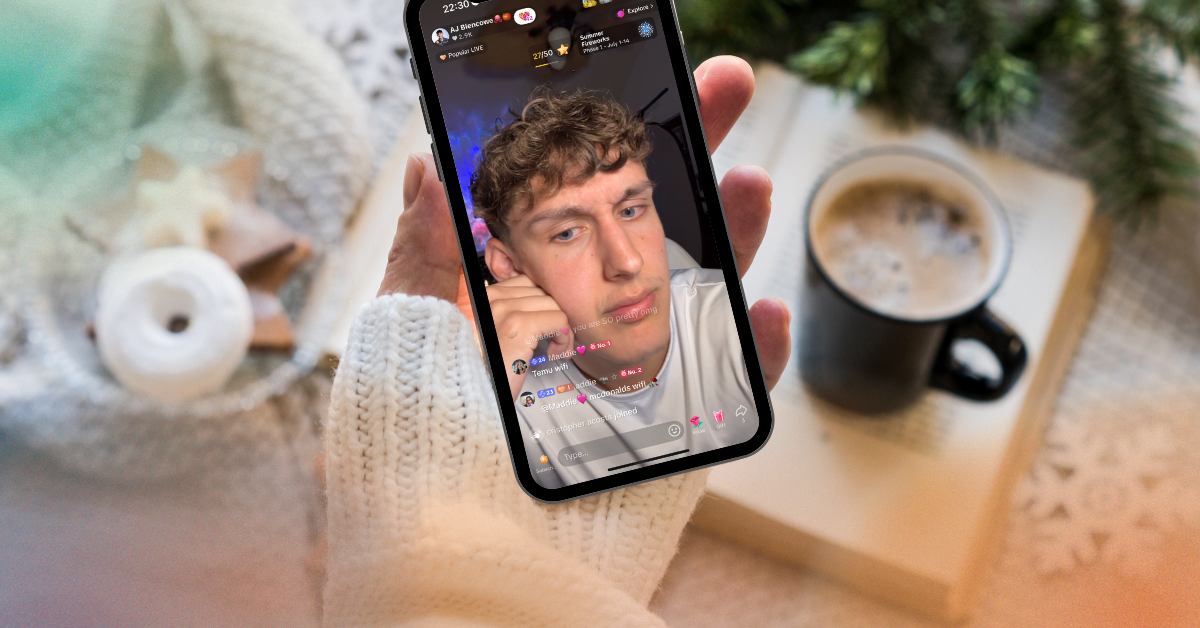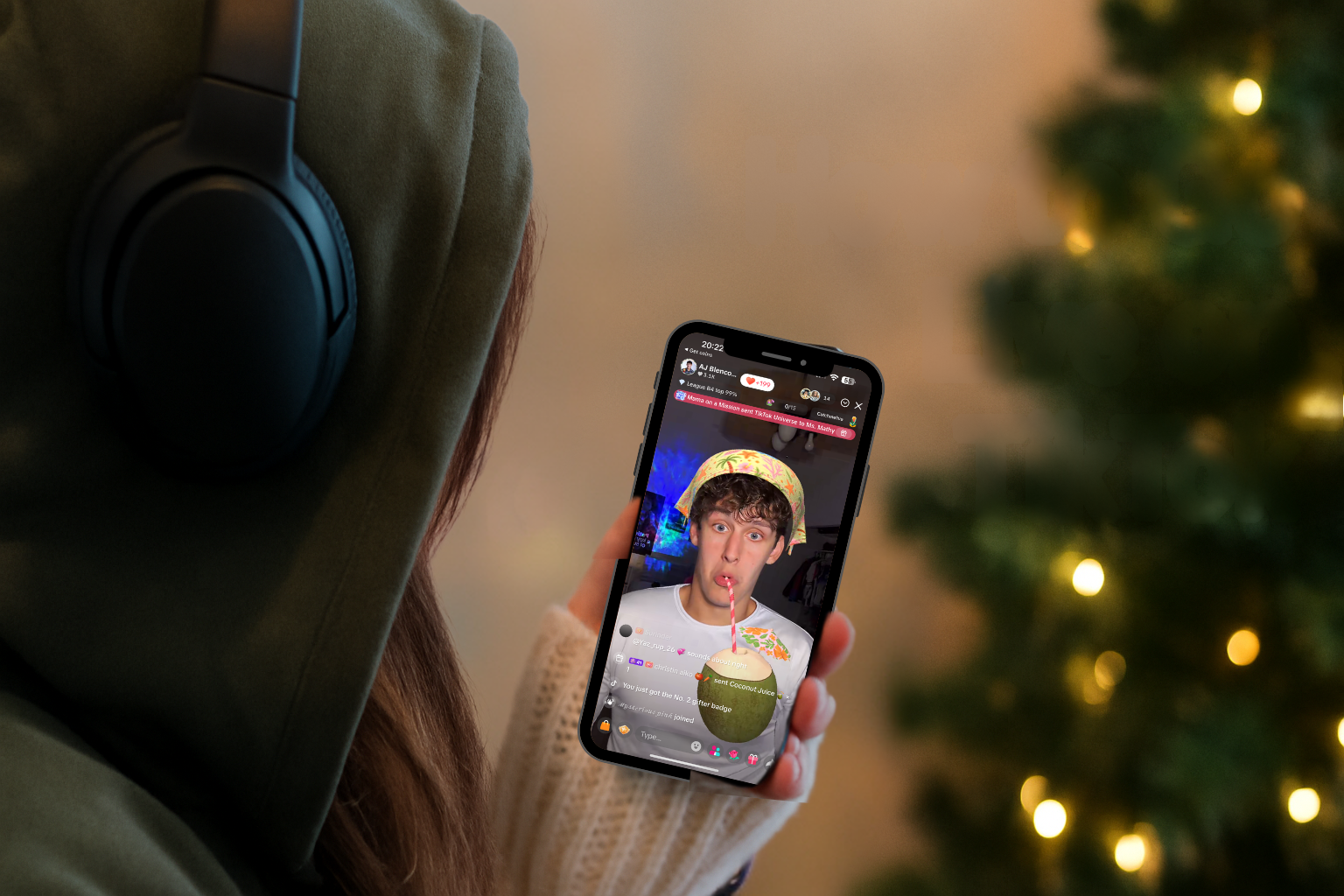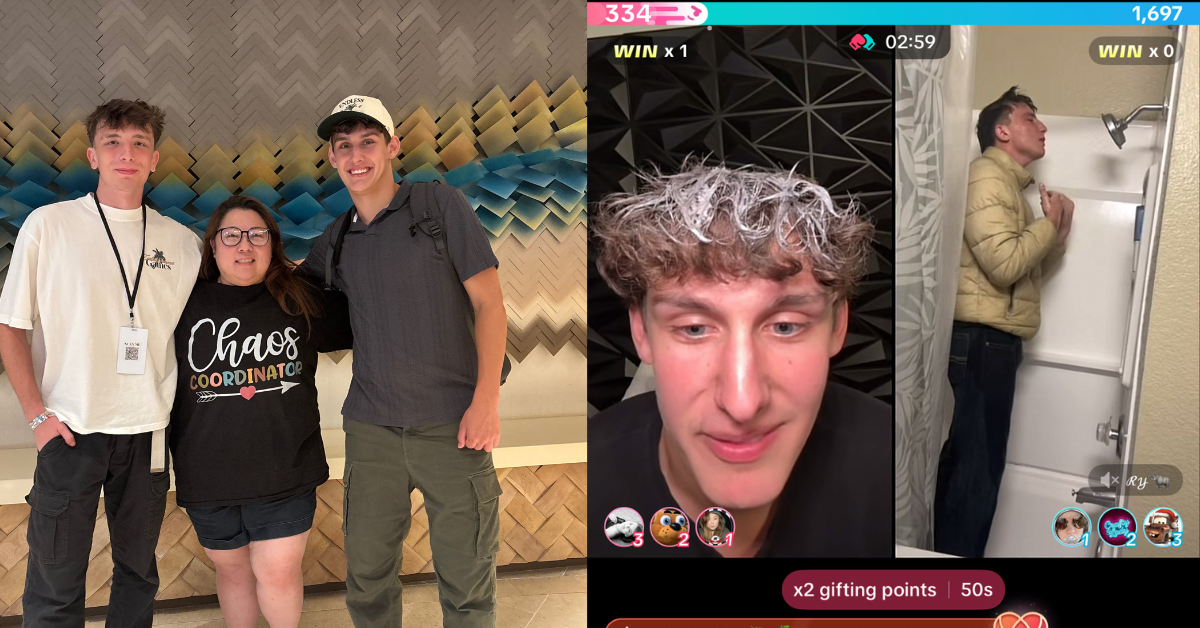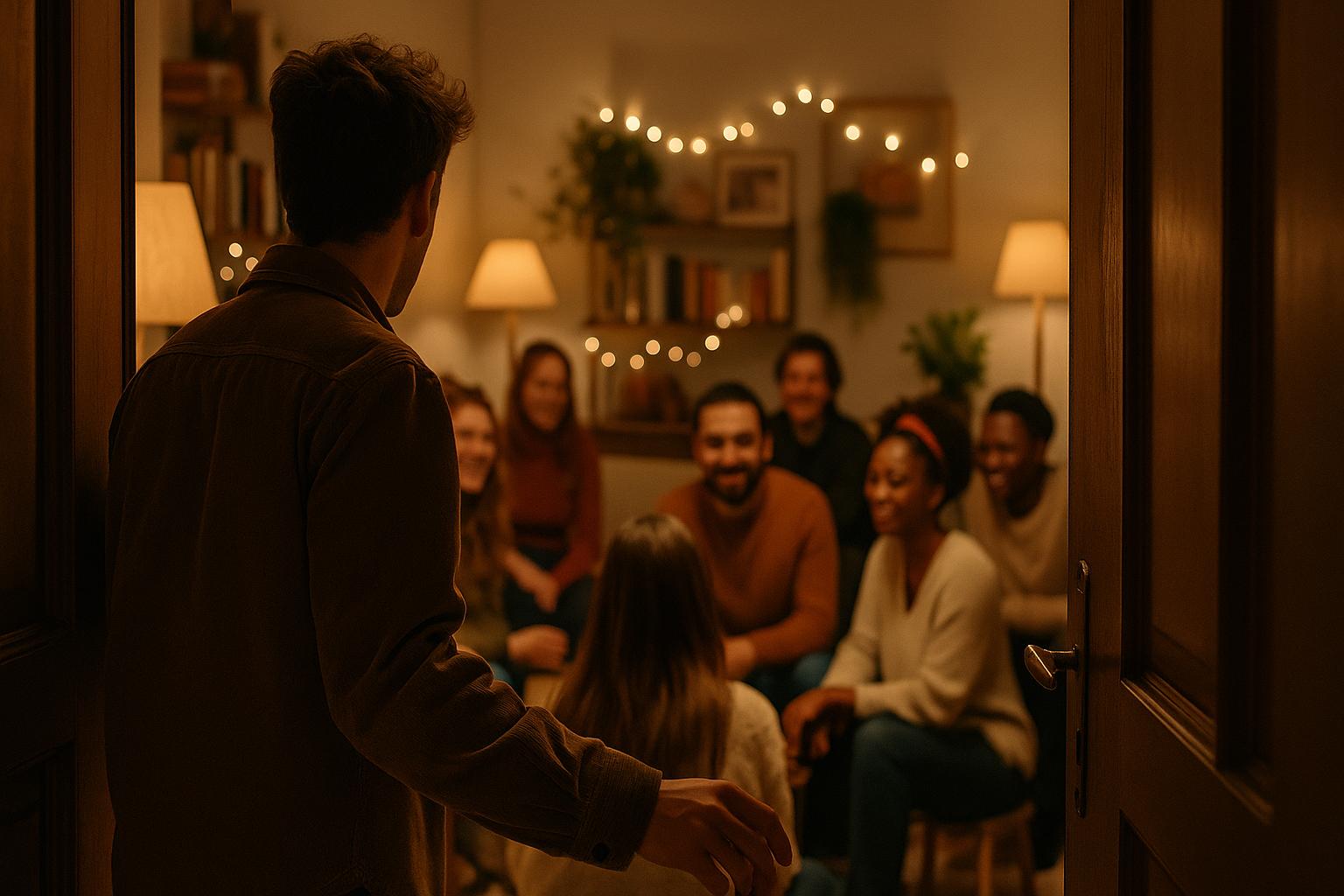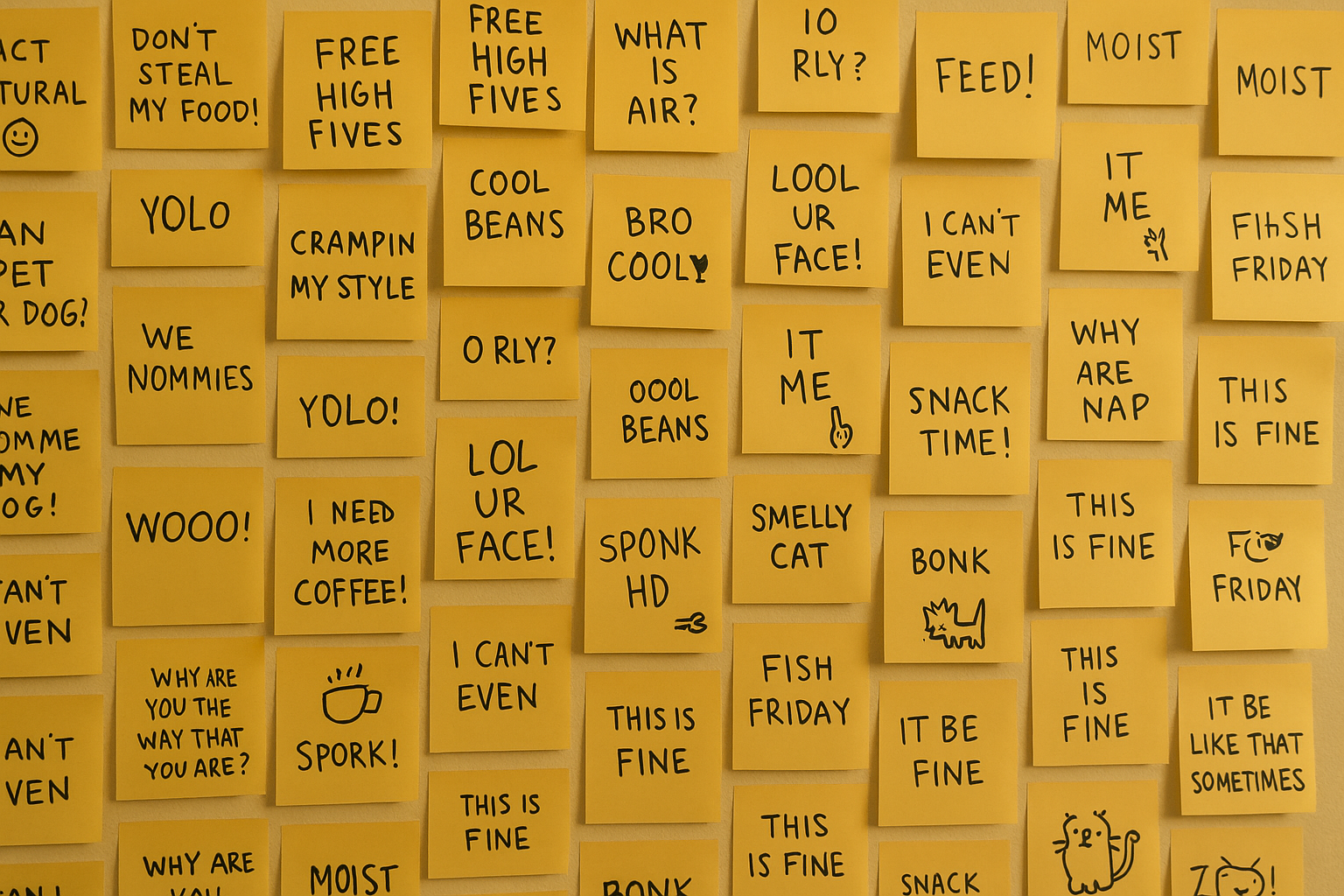Finding Community on TikTok Live: The Power of Belonging Online
We often dismiss online spaces as “less real.” But my experience on TikTok Live proved otherwise. Belonging is built through presence, not polish — through small, consistent acts of care that remind us we’re not just usernames on a screen.
Protecting My Peace
I’ve always been a relatively private person. Not just the kind who avoids oversharing on social media, but the kind who thinks carefully about what parts of myself I offer to people at all. I’ve always felt that once you give a piece of yourself away, whether it’s a story, a struggle, or even just your unfiltered opinion, you can’t take it back. People can hold onto it, interpret it differently than you meant, or even use it against you. So, I learned to keep most things close to my chest.
In most digital spaces, people don’t even know my last name. I’ve built entire friendships where we recognize each other by profile pictures and emojis instead of personal details. And honestly, I liked it that way. It gave me control, a way to exist online without feeling exposed.
In person, the circle of people I truly confide in is even smaller. I’ve always believed in quality over quantity when it comes to trust. My peace is hard-earned, and protecting it isn’t just a preference. It feels like survival.
Still, there’s a loneliness that creeps in when your world is so tightly guarded. You can be surrounded by acquaintances and still feel unknown. You can scroll through endless content and still feel unseen. For me, joining online spaces was never about chasing attention. It was about chasing connection, even if I didn’t fully realize it at the time.
Over the years, I’ve joined and left multiple TikTok Live communities. Sometimes the vibe was off. Sometimes, the people felt shallow or cliquey. Sometimes I just didn’t have the energy to invest. So, I’d leave, closing the door behind me quietly, carrying my peace with me like a shield.
Then in March, something unexpected happened. I was asked to step into a new role: serving as a referee for Recapture Livestream.
At the time, I was struggling physically, emotionally, and spiritually. My body felt worn out, my mind felt scattered, and my spirit felt dim. Saying yes didn’t make sense logically, but something in me agreed before my brain could argue. Maybe it was curiosity. Maybe it was hope. Or maybe it was just the quiet belief that sometimes saying yes to something small can open a door to something bigger.
The Role & Meeting AJ
The role was simple on paper: connect creators, watch the tournament battles, and record the wins. A clipboard job, really, except there was no clipboard, just my phone and a sense of responsibility to keep things fair. On the surface, it didn’t sound like much.
I was assigned to matches at random, often between creators I didn’t follow and sometimes had never even heard of. That meant every night was unpredictable. One minute, I’d be watching two seasoned streamers banter like best friends. Next, I’d be in the middle of an awkward matchup where the silence was so heavy it felt like I was trespassing.
On my second night, one of those creators was AJ Blencowe.
I remember the moment clearly, not because I thought it would matter, but because of how ordinary it seemed. His livestream popped up on my screen like dozens of others had before. A plain background. A face I didn’t recognize. A username I didn’t know. My first thought was almost dismissive: “Who is this kid? Never heard of him.”
There was nothing polished about his setup. His bed was in the background. The lighting was much like every other streamer’s…you know, those LED galaxy lights that everyone seems to buy off Amazon.
But then, something shifted. As the battle went on, I noticed the way his chat lit up, not just with emojis and random comments, but with genuine interaction. People weren’t just watching him. They were talking to him, with him, around him. It wasn’t a one-sided performance where the creator broadcasted and the viewers silently consumed. It was a conversation, messy and alive.
AJ didn’t act like someone trying to impress. He laughed at his own awkward jokes, rolled with the trolls, and didn’t hide when he stumbled. There was a humility there, paired with a humor that disarmed the usual tension of competition.
I didn’t know it yet, but that was the night something clicked. Not in a thunderbolt, life-changing moment kind of way. More like a spark that lingers, small enough to ignore, but steady enough to draw you back.
Something stuck. I came back again and again until his chat quietly became my community. And as much as I troll AJ, I mean it when I say he’s become like a little brother to me.
Sometimes the people you least expect end up becoming the ones you hold closest.
Which leaves me with the question I never thought I’d ask: Can you really belong in a place where people only know you through a screen?
The Myth of Real vs. Online Connection
There’s still this idea floating around that online friendships aren’t real friendships. It’s not always said outright, but it shows up in the way people roll their eyes when you mention someone you “met online,” or how older generations dismiss digital spaces as shallow, superficial, or even dangerous.
Many argue that online spaces are nothing but curated personas, filters, and highlight reels. And to be fair, the internet is full of those things. But what often gets overlooked is the other side: the messy, unpolished, unfiltered interactions that don’t make it into Instagram feeds or perfectly edited TikTok clips.
What I’ve experienced in AJ’s chat suggests otherwise. His livestream is the opposite of curated perfection. It’s messy, unpredictable, and unfiltered in the best way. People see him learning guitar and messing up chords. They see him streaming with his unmade bed in the background, bantering with Mandy mid-battle about his messy room. They see him try out a cringey dad joke that flops, only to laugh harder when the chat trolls him for it. That kind of honesty builds trust.
Community doesn’t need to be polished to be real. In fact, sometimes it’s the imperfections, the awkward silences, the corny jokes, the rough edges, that make it feel most authentic.
And the chat? It’s full of people who show up every single day, not because they’re obligated to, but because they want to. They remember the little things others said weeks ago. They celebrate each other’s wins, no matter how small, and they check in when things aren’t going so well.
That doesn’t sound fake to me. If anything, it feels more intentional because no one is forced to be there. Unlike school, work, or family obligations, digital communities like AJ’s chat are built entirely on choice.
And belonging, at its core, is built on choice.
The Power of Unexpected Online Spaces
What surprised me most was where that sense of belonging showed up. It wasn’t where I was looking. It wasn’t where I thought it should be.
For me, it didn’t come from a group chat with people I already knew, or a Discord server I joined intentionally, or even a circle of friends I had in real life. It came from something far less predictable, a random TikTok Live I stumbled into while reffing.
On my second night as referee, I didn’t even know AJ’s name yet. To me, he was just another face on the screen, another creator I’d been assigned to watch for fifteen minutes before moving on to the next.
The way AJ carried himself on camera was different. It wasn’t the overconfidence I’d seen in some streamers. It wasn’t the detached professionalism of others. Instead, there was this mix of humility and humor, like he didn’t take himself too seriously, but he took the people in his chat seriously.
And the chat mirrored that energy. They weren’t just there to throw gifts and leave. They were talking to him, laughing with him, hyping him up, trolling him in good fun. There was a rhythm to it all, like stepping into a living room full of inside jokes where somehow, you didn’t feel like an intruder.
That night, I realized something I hadn’t before: sometimes you don’t find community. Sometimes it finds you.
If I’d been searching intentionally for a “safe space,” I probably would’ve overlooked AJ’s livestream entirely. I would’ve judged it too quickly, too small, too random, too messy. But belonging doesn’t always arrive in polished packages. Sometimes it shows up disguised as an ordinary moment, a random click, a livestream you weren’t planning to watch.
AJ himself played a big part in that. He wasn’t trying to “build a community” in the corporate sense of the word. He was just showing up as himself, and that honesty set the tone. He laughed at his mistakes, admitted when he was figuring things out, and leaned into the awkward moments instead of hiding them. That kind of presence made the livestream feel less like content and more like a space.
Sometimes, community doesn’t announce itself with a welcome banner. Sometimes, it just quietly forms around the people who keep showing up.
What Belonging Looks Like in Digital Communities
Belonging online doesn’t look that different from belonging in person. In fact, the longer I’ve been part of AJ’s chat, the more I’ve realized it’s built on the same small, ordinary moments that bond people in classrooms, offices, or friend groups.
It’s in the consistency. People showing up at the same time every night like it’s part of their daily routine.
It’s in the inside jokes. Some of them so niche they wouldn’t make sense to anyone outside the chat. Like the one-liners that come from AJ’s random slip-ups, or the way the chat teases him for his not-so-successful attempts to grow facial hair.
It’s in the nicknames that stick. In AJ’s stream, regulars don’t stay just usernames for long. They get noticed, called out, teased, or given a little title that only makes sense in that space.
But belonging also shows up in subtler ways, ways that prove digital connection can carry real weight.
It’s when someone notices a regular hasn’t been around for a few days and asks, “Hey, has anyone seen them? Are they okay?”
It’s when another viewer remembers a challenge someone mentioned weeks ago and checks in on it.
It’s when the entire chat suddenly unites to hype someone up after AJ interacts with them directly, flooding the screen with encouragement until the person on the other end feels seen.
Those small gestures transform the livestream into something more than entertainment. They turn it into a space of care.
And it’s not one-sided. AJ sets the tone by showing up as himself, awkward, funny (though the dad jokes are not so funny), and genuine, and the chat responds in kind. The result is this ongoing exchange where creator and community blur together.
Those moments remind you that you’re not just another username scrolling across the screen. You’re part of something bigger. Something alive.
The Deeper Impact of Belonging Online
What happens in these spaces doesn’t just stay online. It spills over, quietly reshaping the way you move through everyday life.
Feeling seen and supported in AJ’s chat gave me something I didn’t realize I was missing: a sense of stability. But logging into his livestream and seeing familiar names pop up gave me a kind of anchor.
That consistency started to shift things in me. It gave me the confidence to speak up more, not just in livestreams, but in real-life conversations. I stopped second-guessing whether my voice mattered.
Watching AJ push himself also challenged me. He didn’t just stream when it was convenient. He showed up night after night, even when the competition was tough, even when we trolled him a little too much, even when he didn’t feel fully prepared. That kind of courage has a way of rubbing off on you. It made me ask myself: If he can show up and risk failing publicly, why am I so afraid to step out privately?
Sometimes encouragement from a stranger online gives you the courage to face life offline.
Even the simplest acts of care in the chat carried more weight than I expected. When people remembered details about my life or hyped me up in the middle of an ordinary moment, it reminded me of something essential: community isn’t about geography. It’s about presence.
That’s what AJ’s livestream taught me. Community doesn’t grow out of perfection. It grows out of presence.
Conclusion: Can You Really Belong Online?
So, can you really belong in a place where people only know you through a screen?
I used to think the answer was no. I used to believe belonging required physical presence, the ability to look someone in the eye, hear the tone of their voice without static or lag, and share space that couldn’t be minimized with the tap of a button. But I don’t believe that anymore.
Belonging isn’t about the platform. It isn’t about the distance between people or the technology that connects them. It’s about the way people show up, the way they remember, the way they care.
For me, it happened in a TikTok Live community I never expected to stay in. A place I stumbled into by accident, when I was supposed to be focused on scores and outcomes, not connection.
It’s ironic, in a way. I’ve always been a private person, protective of my peace, cautious about who I let in. Yet some of the people who have made me feel most seen in this season of life are people I’ve never met in person. (Though I did meet AJ in person after a few months.)
That’s the thing about belonging. It doesn’t always look the way you thought it would. Sometimes it’s not your lifelong friends, or your coworkers, or the people who live in your same city. Sometimes it’s a 22-year-old learning guitar on a livestream, cracking dad jokes while the chat teases him about his unmade bed. Sometimes it’s a handful of strangers who choose to show up night after night until “strangers” doesn’t feel like the right word anymore.
Belonging is not bound by location. It’s built by people.
Sometimes belonging is just one random click, one livestream, one conversation away.


